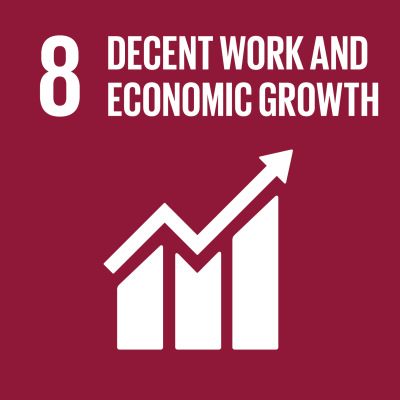 Apprenticeship in Formal and Informal sector
Apprenticeship in Formal and Informal sector
Challenges
Bangladesh has a total population of 159 Million (BBS, 2015) and a labor force of 79 million (World Bank, 2014). With a projected labor force growth rate of 2.2 over the next 10 years, 2 million youth joining the workforce every year. Among them, 0.6 million are from mainstream education and 1.1 million are trained from government/ private skills development agencies. The rest of the forces fall within the NEET (Not in Education, Employment and Training) classification. Thus, there is a significant gap between the demand for skilled workers by the local industries and international job markets and the supply ensured by education and training centers. One plausible reason for this is the communication and coordination gap between employers and skills development agencies.
Towards a Solution
According to the Bangladesh Labor Law (2006), apprenticeship is any system by which an employer undertakes by contract to employ a young person (between the age of 17-30) and to train him/her or have him or her systematically for a trade for a period specified in advance and during which the apprentices are bound to work in the employers service. In the apprenticeship approach employers equip apprentices with on-the-job practical skills, the company is the main learning environment where manual skills, work processes, and procedures, as well as behavior pattern and attitudes, are developed under real work conditions. On the other hand, training institutions equip apprentices with more theoretical off-the-job training which is the second learning environment, where apprentices acquire competencies that are most effectively taught out of the workplace.
Access to Information (a2i) programme, as the innovation intermediary of the government, is working with a whole-of-government approach applying behavior change methodologies and leveraging the rapid expansion of technologies to create an enabling environment for the development of demand-driven skills in Bangladesh.
a2i- innovate for all, developed Apprenticeship Management System (www.apprenticeship.gov.bd) to manage, monitor and mentor apprenticeship programme all over the country, it works as a one-stop hub to serve the stakeholders (youths, industries, etc.) of the apprenticeship programme. The apprenticeship programme is beneficial to apprentices, hiring organization and economic growth of the country.
Benefits of becoming apprentice:
- Apprenticeship gives potential access to full-time employment for semi-skilled and unskilled youth.
- Certificates received after successful completion of apprenticeship helps the apprentices to effectively promote their skills and capabilities to potential employers.
- Apprenticeship counts as credible experience for the trainees which they can use to improve their earning potential.
Benefits of hiring apprentice:
- Business entities operating apprenticeship programs get enough time to mold the apprentices to fit the company culture and work structure.
- Apprenticeship related expenses are tax-free. (Labor Law 2013)
- Import of training equipment is duty-free. (Labor Law 2013)
Benefits for the economy:
- Significant reduction in the unemployment rate of the economy.
- Increase in the overall industrial productivity and continued economic growth.
- More skilled labor force.
The apprenticeship programme can be a practical solution addressing the problem of the gap between the demand for skilled workers by the local industries and international job markets and the supply ensured by education and training centers. As this initiative involves employers, skill development agencies and youths to ensure that demand-driven skills are being developed through education and training centers.
As of April 2019, under its apprenticeship programme covering over 400+ formal industries, a2i has enrolled over 22,000+ apprentices in important sectors like agro-food, furniture, tourism & hospitality, construction, leather & footwear, etc. Important trades include baking, food processing, wood machine operation, lacquer polishing, carpentry, food & beverage services, chef, housekeeping, plumbing, tiles fitting, footwear production, etc. In informal sectors, through partnerships with 3,500+ workplaces, over 12,500 apprentices in 132 upazillas have received training and have landed in jobs. Important trades include electrical house wiring, welding, glass & mirror fitting, mobile servicing, motorcycle mending, tailoring & dressmaking, etc.
Besides, a2i has also partnered with the Department of Social Services within the government to implement apprenticeship program in an additional 102 upazillas touching more than 6770 by June 2019. The number is expected to be 11,498 by June 2022. The total number of apprentices is expected to reach over 42,300 by the end of 2019. Apprenticeship programme coordinate employers and skill development agencies that ensure the development of demand-driven skills which ensure the sustainability of the programme.
Contact Information
Countries involved
Supported by
Implementing Entities
Project Status
Project Period
URL of the practice
Primary SDG
Secondary SDGs
Similar Solutions
| NAME OF SOLUTION | Countries | SDG | Project Status | |
|---|---|---|---|---|
360-Degree Awareness Tool to Fight COVID-19 Raising awareness and ensuring public wellbeing through a one-stop platform for fighting COVID-19 in Bangladesh |
Bangladesh | 16 - Peace and Justice Strong Institutions | Ongoing | View Details |
A-Card Initiative |
Bangladesh | 10 - Reduced Inequalities | Completed | View Details |
Accelerating Digital Transformation in All Ministries in Bangladesh Promoting the rapid design and implementation of plans to digitize all ministries and subordinate government institutions in Bangladesh |
Bangladesh | 10 - Reduced Inequalities | Ongoing | View Details |
Accelerator Labs Network Following collective intelligence methods to address emerging sustainability challenges and the growing demand for local solutions |
Bangladesh | 08 - Decent Work and Economic Growth 13 - Climate Action | Ongoing | View Details |
Accessibility ToolKit Promoting accessibility as a cornerstone for inclusive digital development in Bangladesh. |
Bangladesh | 08 - Decent Work and Economic Growth | Completed | View Details |